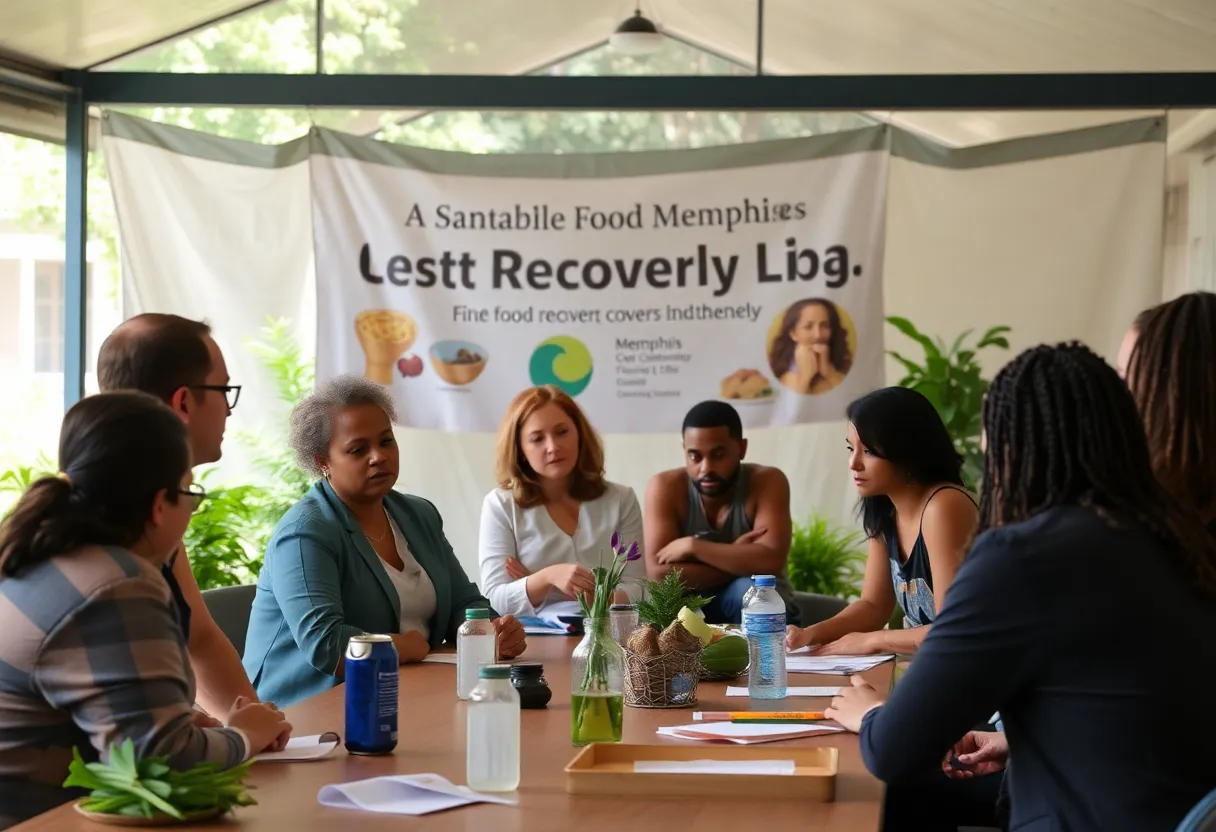News Summary
Memphis is grappling with a significant food waste crisis, with individuals wasting nearly $800 worth of food each year. This trend contributes to broader environmental concerns, as food waste generates methane gas, exacerbating climate change. Local organizations and residents are urged to take action by adopting sustainable practices and enhancing food recovery initiatives, addressing the systemic challenges in food distribution and consumption to create a more eco-friendly community.
Memphis Faces Rising Food Waste Crisis
Memphis is facing a significant challenge as individuals in the United States waste nearly $800 worth of food each year. This alarming statistic is part of a larger trend highlighting a nationwide food waste crisis, with an estimated 40% of food produced in the country being discarded.
The financial and environmental implications of this wastage are staggering. Food waste not only results in monetary losses for families but also contributes to environmental degradation as decomposing food generates methane, a potent greenhouse gas that accelerates climate change. The issue of food waste is not limited to urban areas but has implications for communities across America, including urban areas like Memphis, which is home to nearly a million residents.
Local Context
The Memphis metropolitan area recognizes the scale of food waste as a prominent concern. The mere fact that each individual household unnecessarily throws away food worth $800 annually signals a need for community awareness and collective action. Organizations, local businesses, and residents are increasingly being called upon to find solutions that can mitigate food waste and foster a more sustainable lifestyle.
Understanding Food Waste
Food waste occurs at various stages—from production and processing to retail and consumption. Factors such as over-purchasing, poor storage, and lack of awareness about food expiration dates contribute significantly to the problem. In households, consumers may forget about items in their fridge or pantry, leading to avoidable waste.
Moreover, large-scale retailers often face challenges in managing inventory, resulting in excessive food products that cannot be sold before reaching their expiration dates. This issue extends beyond individual households and highlights the systemic problems within the food distribution and retail landscape.
Call to Action
Addressing food waste in Memphis requires a multi-faceted approach. Educational programs focused on food preservation techniques, meal planning, and shopping smart can help residents reduce waste. Additionally, initiatives aimed at food recovery—such as donating excess food to local shelters or food banks—provide pathways for utilizing food that would otherwise go to waste.
Local businesses and organizations can also play a vital role by adopting and promoting sustainable practices. Community engagement through workshops, awareness campaigns, and partnerships with local farms can empower residents to make more conscious choices regarding food consumption and waste management.
Long-Term Solutions
For Memphis to effectively tackle the food waste crisis, long-term strategies must be implemented. City officials and community leaders should work together to develop policies incentivizing food donation and recovery, alongside fostering partnerships with environmental organizations. By enhancing infrastructure for food redistribution, Memphis can not only reduce waste but also provide for those in need.
Furthermore, public awareness campaigns may help shift perceptions around food waste, reinforcing the importance of responsible consumption. As individuals take proactive steps to reduce waste in their own homes, the cumulative effect could contribute significantly to lessening the burden of food waste on the local community and the planet.
Conclusion
As Memphis continues to grapple with food waste challenges, it is clear that substantial changes are required both at the individual and systemic levels. By acknowledging the facts surrounding food waste and breaking the cycle of unnecessary waste, residents can contribute to a more sustainable future for the community and for the environment.
Deeper Dive: News & Info About This Topic
HERE Resources
Additional Resources
- Memphis Flyer: Food Waste is a Trash Problem in Memphis
- Wikipedia: Food Waste
- Memphis Flyer: News of the Weird
- Google Search: Food Waste Crisis
- Memphis Flyer: Free Will Astrology
- Google Scholar: Food Waste Management
- Memphis Flyer: State House Senate Leaders Accuse Memphis Schools
- Encyclopedia Britannica: Food Waste
- Memphis Flyer: Playing Telephone
- Google News: Memphis Food Waste

Author: STAFF HERE MEMPHIS WRITER
The MEMPHIS STAFF WRITER represents the experienced team at HEREMemphis.com, your go-to source for actionable local news and information in Memphis, Shelby County, and beyond. Specializing in "news you can use," we cover essential topics like product reviews for personal and business needs, local business directories, politics, real estate trends, neighborhood insights, and state news affecting the area—with deep expertise drawn from years of dedicated reporting and strong community input, including local press releases and business updates. We deliver top reporting on high-value events such as Beale Street Music Festival, Elvis Week, and Memphis in May International Festival. Our coverage extends to key organizations like the Greater Memphis Chamber and the Memphis Convention & Visitors Bureau, plus leading businesses in logistics, healthcare, and music that power the local economy such as FedEx, St. Jude Children's Research Hospital, and AutoZone. As part of the broader HERE network, including HEREBristol.com, HEREChattanooga.com, HEREKnoxville.com, and HERENashville.com, we provide comprehensive, credible insights into Tennessee's dynamic landscape.






